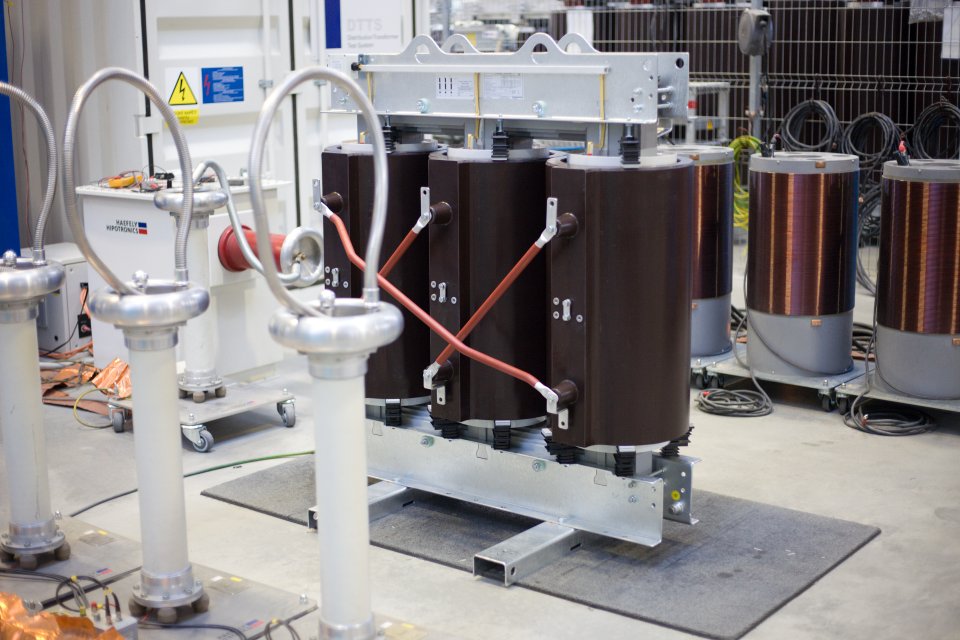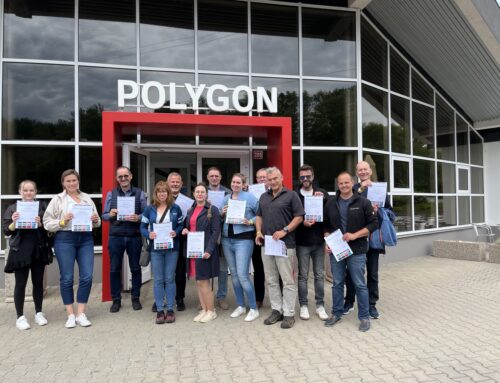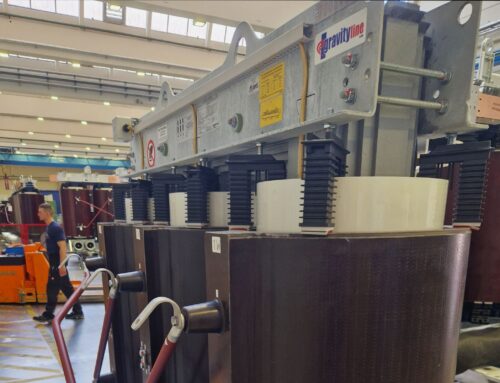Dry-type transformer manufacturing: quality, safety and people as top priority
Dry-type transformer manufacturing is a complex process that requires not only advanced technology, but also adherence to strict norms and standards to ensure maximum product reliability and safety. Internationally, these standards play a key role in ensuring the quality and credibility of products and processes, which is why ISO certifications are so important.
The history of dry-type transformer manufacturing in Europe began to take shape around the middle of the 20th century. A significant innovation was the advent of cast resin transformers, which provided an alternative to oil-filled units, particularly suitable for indoor and environmentally sensitive applications. Decades of research and innovation have made dry-type transformers an integral part of modern industry. Founded in 1913, the SGB-SMIT Group has played a key role in the development and manufacture of these transformers, particularly in the fields of wind power, data centres and industrial applications.
ISO standards as a basis for quality
ISO standards, which trace their roots back to 1947 when they were first introduced globally, are now a key tool for companies around the world. The International Organization for Standardization (ISO) produces standards that are recognized across a variety of industries and enable companies to improve their processes, product and service quality, while protecting the environment and, most importantly, worker safety.
ISO 9001, one of the most widely used standards, focuses on quality management systems and ensuring that products meet customer requirements. In the field of dry-type transformer manufacturing, this standard ensures that every step in the process - from design to production to delivery - is strictly controlled and continuously improved. Validation of transformer quality through routine in-house testbay testing is essential, as the reliability of these devices has a direct impact on a wide range of industrial applications.
ISO 14001 focuses on environmental protection. Responsible management of the environmental aspects of production is crucial not only in terms of legal requirements, but also in terms of long-term sustainability. In the field of dry-type transformers, this means using practices that minimize negative environmental impact, such as reducing emissions during production and efficient waste management.
ISO 45001 is a relatively new standard (published 12 March 2018) that deals with the safety and health of employees in the workplace. Its predecessor was OHSAS 18001, which became the basis for safety standards in manufacturing companies. The implementation of this standard in practice ensures that employees working in industries with a high level of technical complexity are protected from risks and hazards that can occur during production.
Climate and safety testing
Dry-type transformers have to operate in very harsh conditions and are therefore subjected to rigorous climatic and environmental testing according to international standards such as IEC 60076-11. SGB Czech Trafo transformers have been successfully tested to climate class C3 (excluding transport) and E3. They are therefore able to operate reliably in environments with temperatures as low as -25 °C. Environmental class E3 testing includes the transformers' resistance to the effects of moisture and salinity in the environment.
Another crucial test is the F1 test, which verifies the fireproofness of transformers and their ability to minimize the spread of fire in the event of an unexpected accident. This aspect is particularly important in industrial environments where safety plays a key role.
To ensure the highest quality, SGB Czech Trafo uses internal standards that are even more stringent than the generally applicable standards. For example, the 5pC standard ensures that the level of partial discharges is extremely low, contributing to longer equipment life and less risk of faults.
People in focus
Dry-type transformer manufacturing is not just about technology and machinery - people always come first. Whether it's about employee safety or customer trust and satisfaction, the human factor plays a key role. Implementing ISO 45001 ensures that workplaces where dry-type transformers are manufactured have procedures in place that protect the health and safety of workers.
Customer trust is also a key factor that drives the entire production process. Customers who use dry-type transformers in their industrial processes need to be confident that the products they receive meet the highest standards of quality and safety. By strictly adhering to standards such as ISO 9001, 14001, 45001 and others, transformer manufacturers can provide reliable products that serve their purpose for many years without downtime or breakdowns.





